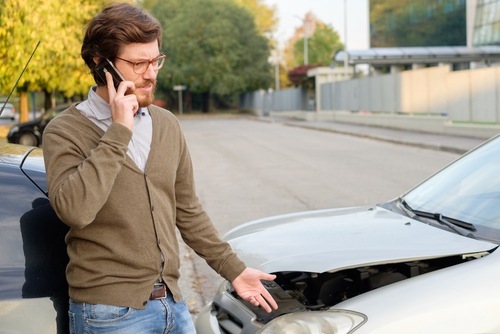
Uber and Lyft are California’s two most prominent ride-sharing companies. Technically known as “Transportation Network Companies” or “TNCs,” ridesharing companies in California are regulated by the California Public Utilities Commission (CPUC) and the California Public Utilities Code. Among other things the code:
- Sets forth minimum California auto insurance requirements for ride-sharing drivers (with limits of at least $1,000,000 while passengers are in the vehicle), and
- Requires ride-sharing services to conduct background checks of drivers.1
People who are victims of accidents or crimes by Lyft or Uber drivers have a number of potential remedies, including:
- Uber and Lyft accident lawsuits.
- Suing for an assault or battery by an Uber or Lyft driver or passenger, and
- Lawsuits for sexual assaults by Uber or Lyft drivers.
Additionally, drivers who are injured while driving for a TNC or believe their working conditions were violated can file a California wage and hour lawsuit against Uber or Lyft.
People can also file a consumer complaint with the California Public Utilities Commission.
Why hire Shouse Law Group to sue Uber or Lyft?
Our California ride-sharing accident lawyers include current and former litigators, cops, prosecutors and criminal defense lawyers. We know how to investigate and put together individual and class-action lawsuits against
- Uber,
- Lyft, and
- other ride-sharing companies.
To help you better understand how to file a lawsuit against Uber or Lyft or another ride-sharing company, our California Uber accident lawyers and Calfornia Lyft accident lawyers discuss the following, below:
- 1. What are Uber and Lyft?
- 2. How are ride-sharing services different from taxi companies?
- 3. Who can I sue for an accident involving a ridesharing driver?
- 4. Can I sue Uber or Lyft if my driver commits a crime?
- 5. Are Uber and Lyft drivers employees or independent contractors?
- 6. California wage and hour claims by Uber and Lyft drivers
You may also want to read our comprehensive blog entry: Who is Responsible for an Uber or Lyft Accident or Crime in California?

1. What are Uber and Lyft?
Uber and Lyft are companies that use a computer app to bring together passengers with drivers in their area willing to give them a lift. Commonly called “ridesharing services,” companies such as Uber and Lyft are technically referred to as “Transportation Network Companies.”
There are 14 licensed ride-sharing companies in California. In addition to Uber and Lyft, the California Public Utilities Commission has issued permits to nine other general ride-sharing services and three which offer ridesharing exclusively to children.
2. How are ride-sharing services different from taxi companies?
Transportation Network Companies are different from traditional taxi and limo companies in several respects:
- They often have less prominent visual displays and signage,
- Drivers set their own schedules,
- Drivers never have to accept a specific ride or rider, and
- Drivers often drive their own cars and are responsible for maintenance and fuel, and
In addition, taxis must have a commercial insurance policy that applies 24/7, regardless of whether the driver is on duty.
With ride-sharing services, the company’s commercial policy only applies when there are passengers in the vehicle or the driver has logged into the app and is looking for passengers.
When the driver is on his or her own time, only the driver’s individual car insurance applies. Such insurance may be as little as the minimal California 15/30/5 insurance, meaning it covers a maximum of:
- $15,000 in damages for death or injury to any one person for any single accident,
- $30,000 in damages to be divided among all people killed or injured in any single accident, and
- $5,000 in damage to other vehicles and property.2
3. Who can I sue for an accident involving a ridesharing driver?
Liability for an accident involving an Uber, Lyft or other ride-sharing driver in California depends on three things:
- Who caused the accident,
- Whether the injured party was a passenger of the service at the time of the accident, and
- Whether the driver was on his/her own time, looking for a passenger using a ride-sharing app, or driving a passenger referred by a TNC.
Drivers who cause accidents (and their insurers) are liable when they are on their own time, regardless of whether they drive for a TNC or otherwise.
Once a driver starts using a ride-sharing app, the ride-sharing company and its commercial insurer also assume liability. The driver’s passengers, people in other cars, and pedestrians may all be able to claim damages from these companies as well as from the driver.
4. Can I sue Uber or Lyft if my driver commits a crime?
While rare, passengers have occasionally claimed to be victims of sexual assault, assault and battery or other crimes by Uber or Lyft drivers. In such cases, a passenger may be able to sue the driver for damages such as:
- Medical bills,
- Costs of psychological counseling,
- Lost wages,
- Future lost earning capacity,
- Pain and suffering,
- Wrongful death, and
- Potentially even punitive damages.
Whether the ride-sharing company can also be sued is an open question. A key question is whether a ridesharing company’s drivers are employees (as plaintiffs claim) or independent contractors.
If the drivers are employees of Uber or Lyft, the company may be liable for crimes by a driver under:
- California’s doctrine of respondeat superior (vicarious employer liability),
- California’s law on negligent hiring, retention and supervision, or
- A non-delegable duty to conduct background checks and keep passengers safe.3
5. Are Uber and Lyft drivers employees or independent contractors?
Uber and Lyft claim their drivers are independent contractors. They say they connect drivers and passengers the way eBay and Craigslist connect sellers and buyers.
To date, ride-sharing services have settled claims that turn on this issue out of court in order to avoid having the issue decided by a judge.4
But, as discussed below, the California Labor Commission has ruled in wage and hour cases that ridesharing drivers are employees.5 Although not binding on the civil court system, it suggests that at least some courts may be receptive to this argument.
Our California personal injury lawyers are following developments in this area of the law closely in order to best serve our clients.
The California Department of Industrial Relations has a good page on who is an employee or an independent contractor in California.
6. California wage and hour claims by Uber and Lyft drivers
Uber and Lyft take the position that their drivers are independent contractors. Independent contractors are not entitled to the benefits of California employee protections, such as
- working hours,
- overtime pay,
- minimum wage,
- unemployment insurance, and
- workers’ compensation.6
Ride-sharing companies typically require their drivers to sign a contract acknowledging they are independent contractors. In early 2016, Lyft entered into a class action settlement in which its drivers agreed to work as independent contractors. A similar case concerning Uber drivers is still active in the California court system.
In the interim, Uber’s agreement with its drivers is not the final say in the matter. The relationship is a matter of law, based primarily on whether the company has the right to control the manner and means in which the worker carries out the job.7
The California Labor Commission has held, in at least one case, that an Uber driver is an employee.8
Our California labor and employment law attorneys are staying abreast of this area of the law as it develops. If you drive for a ride-sharing service and believe you have been improperly treated, we invite you to contact us for a free consultation to discuss your case.
Injured by Uber or Lyft in California? Call us for help…

Contact us for help with your case.
If you or someone you know was injured by a Lyft or Uber driver, or you are a driver with a claim against a TNC, we invite you to contact our California personal injury lawyers for a free consultation.
Call us to discuss your case with an experienced California auto accident lawyer.
We can also help if you were injured by Uber or Lyft in Nevada. Read more about our Las Vegas Uber accident lawyers and Las Vegas Lyft accident lawyers.
Legal references:
- See California Public Utilities Code 5445.2.
- California Insurance Code 11580.1.
- California Civil Jury Instructions (CACI) 3713. Nondelegable Duty. See also, Alexi Pfeffer-Gillet, When “Disruption” Collides with Accountability: Holding Ridesharing Companies Liable for Acts of Their Drivers, California Law Review, Volume 104 Issue 1 Article 5, Feb. 1, 2016.
- See, e.g., Rich McCormick, Uber settles lawsuits to keep drivers as independent contractors in California and Massachusetts, Apr. 21, 2016.
- Berwick v. Uber Techs., Inc., Cal. Dept. Labor No. 11-46739, June 3, 2015.
- See California Tax Service Center, Independent Contractor or Employee.
- See the California Department of Industrial Relations website linked to at the end of Section 5, above.
- Berwick, note 4.
